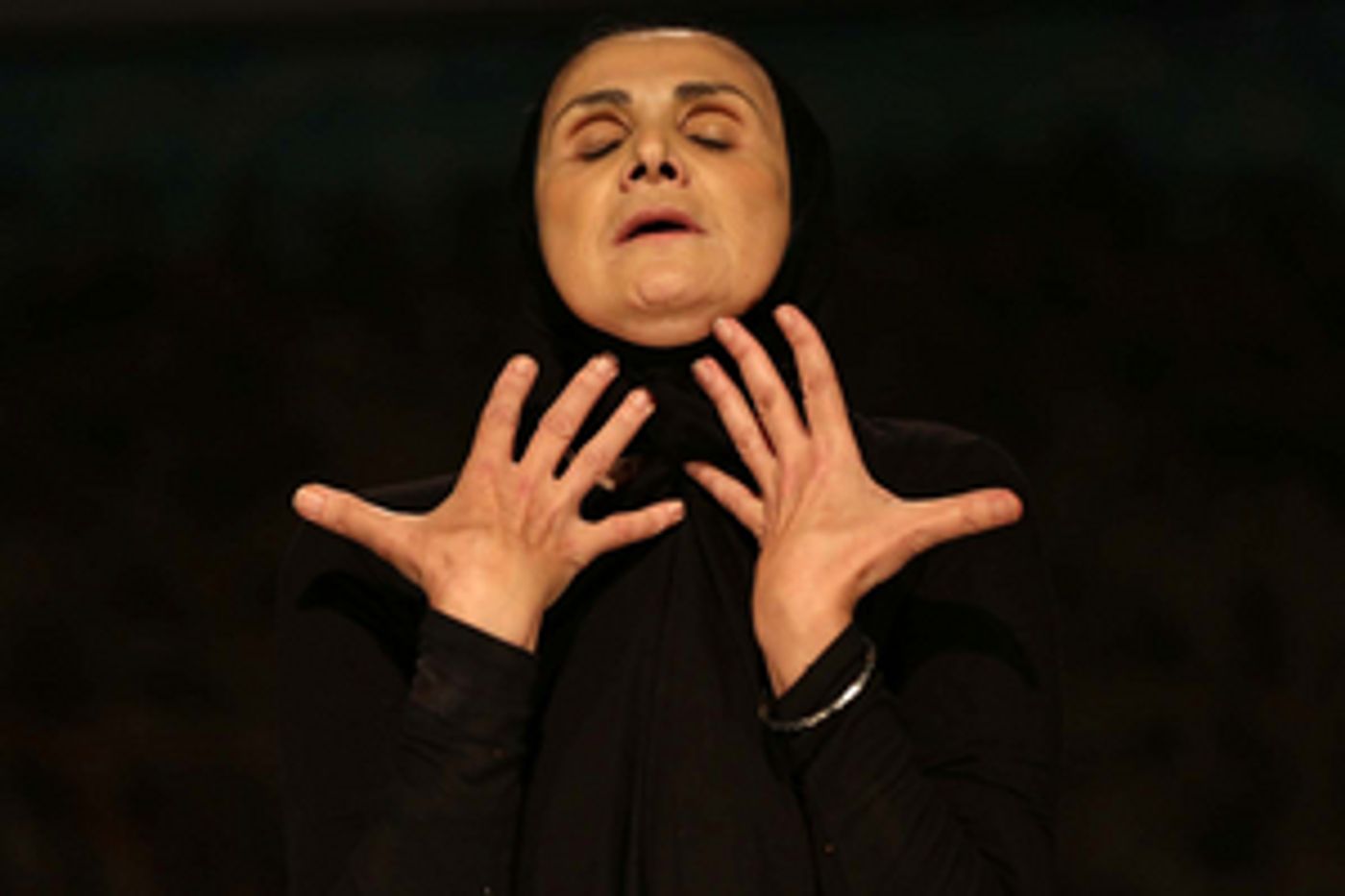Review: The Festival d'Avignon Presents JOGGING By Hanane Hajj Ali
Hanane Hajj Ali presents herself as a complex character, at times vain, coy, gentle, and dismissive.

Hanane Hajj Ali considers a lot when she jogs through her home city of Beirut. She thinks about her compression socks and the pin for her headscarf. She thinks about the birds flying in the sky and, if all birds are praising God, what does it mean when one defecates on her? She thinks about great actors and great roles like Medea. She thinks about the catastrophes and scandals that have rocked her country for the past decades. With conviction and a deft hand, Hanane Hajj Ali takes us through her mind's pathways in Jogging, now in performance in Avignon's Théâtre Benoît XII.
Hanane Hajj Ali presents herself as a complex character, at times vain, coy, gentle, and dismissive. In an introduction to the play, Hanane Hajj Ali describes the work as transgressing "the Lebanese Bermuda triangle of taboos: religion, politics, and sex, and presents a radical challenge to the stereotypes and prejudices that afflict global perceptions of Arab women." A generous vulnerability and dark wit are her primary weapons in puncturing these flat social images.
During her jog all roads lead through Lebanon, but they take circuitous routes. Primary among these is her fascination with the myth of Medea. She walks us through the story. A woman, wronged by her husband Jason, kills their children. At the end she concedes, "I never understood how a woman could kill her children like that. Then I became a mother." This gets a laugh. "My son had cancer at the age of seven and I thought maybe if I killed him, that'd end his suffering." This does not. She sees the plight of Medea in the lives of women throughout her country. These women have to make a terrible choice between keeping their children and watching them continue to suffer in a catastrophic world.
Unlike the world premieres that constitute much of the Avignon Festival, Jogging has had a long pathway to the city, and it shows in her precision. Audience interactions, and there are a considerable number of those, are always charming. The audience is not allowed to sit back in your seat, uncomfortable perhaps with the political charge or intimacy of the work. Instead, they are invited to take part in what she's presenting. Praline Gay-Para and Hassan Abdul Razzak's excellent translations, here in English and in French, glide along effortlessly with Hanane Hajj Ali's performance. You never feel like there is something missing.
Costumes by Kalabsha and Louloua Abdel Baki never overwhelm the body of the performer beneath. Sound by Wael Kodeih shows similar restraint. The most central design element of Jogging, lighting by Sarmad Louis and Rayyan Nihawi, sculpts the space. Under their intuitive design, Jogging moves from a Ted Talk lecture, to a one person confessional, to a dramatic and surreal dreamscape. Additional recognition should be given to artistic director and scenographer Eric Deniaud as well as dramaturge Abdullah Alkafri. A work of such contrasting scales is difficult to balance.
Other Avignon productions are grand, but weighty. They seem to exist for the space in which they are placed. This is, at least for me, part of the cool factor of the Festival. Jogging seems ready made to fit in Hanane Hajj Ali's suitcase. She has a world to convince, and I believe she'll get there. Not in a sprint or a stroll, but at a jog.
Photo Credit: Marwan Tahtah
Reader Reviews

Videos


